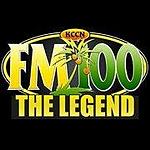

By the early 1990s, technological advances in computer restoration programs and digital re-mastering techniques had made it possible to electronically remove the surface noise from badly worn old 78-rpm records and re-release the restored recordings on modern compact discs. The new version of Territorial Airwaves was also made available “on demand” at Territorial Airwaves celebrated its 30th anniversary on June 12, 2009.Īlthough Soria is most visible in Hawaii as a radio personality, his work as a record producer and musical historian is even more important. For the first time in the show’s history it was pre-recorded – although this change allowed Soria more freedom to work as an emcee at Hawaiian music events in Japan and on the U.S. On January 15, 2006, the show was moved from Hawaiian 105 KINE to AM940 (“All Traditional Hawaiian, All The Time”). Territorial Airwaves moved for a third time after the corporate “suits” decided that the show no longer fit the target market of Hawaiian 105 KINE. When KCCN-AM adopted a talk radio/sports format, Territorial Airwaves was moved to “sister station” Hawaiian 105 KINE and Soria continued the tradition he had started over 20 years before. Alex Anderson and Gabby Pahinui to Genoa Keawe and Randy Oness – joined Soria at least once or twice over the years.īy the time Soria and KCCN 1420 AM celebrated the 20th Annivesary of Territorial Airwaves in 1999, the station had been sold. The show also featured interviews with the entertainers and composers of the period. The music came from his personal collection and covered everything Hawaiian and hapa-haole from 1915 through 1959. Soria developed a large and loyal following. The first broadcast was on June 13, 1979. Three years later, he was invited to do Territorial Airwaves on a weekly basis. He first appeared on KCCN as a guest in 1976. Soria thereafter became a voracious and knowledgeable collector of Territorial Era records his personal archives include thousands of 78-rpm records and the “unbreakable” 33-1/3-rpm vinyl albums and 45-rpm singles that replaced 78s in the 1950s.

When Soria returned to Hawaii, he asked his father to share his memories. Soria was attending college on the mainland when he met a group of record collectors who consider Territorial Era music “cool”. Soria, Sr., had been a prominent local broadcaster and hapa-haole songwriter.


Soria himself had grown up without much interest in the music, even though his father, Harry B. Some denounced the entire hapa-haole genre as “non-Hawaiian”. Others took offense at the matching uniforms. Some found the names of some of the groups of the era as offensive or “colonialist”. Self-anointed cultural commissars of the time dismissed the popular music of the Territorial period as being part of a very bad time in Hawaiian history. Soria launched his Territorial Airwaves radio show on KCCN in 1979, a time when many island residents considered much of the music of that era as either old fashioned or as “tourist music”. is neither a musician nor a vocalist, but no one did more during the final decades of the 20th century to preserve and perpetuate the musical legacy of the Territorial Era (1900-1959). Musicologist, broadcaster, liner notes writer, and record producer. Hawaiian reggae bands 2000s.Hawaiian Music & Musicians - An Encyclopedic History


 0 kommentar(er)
0 kommentar(er)
